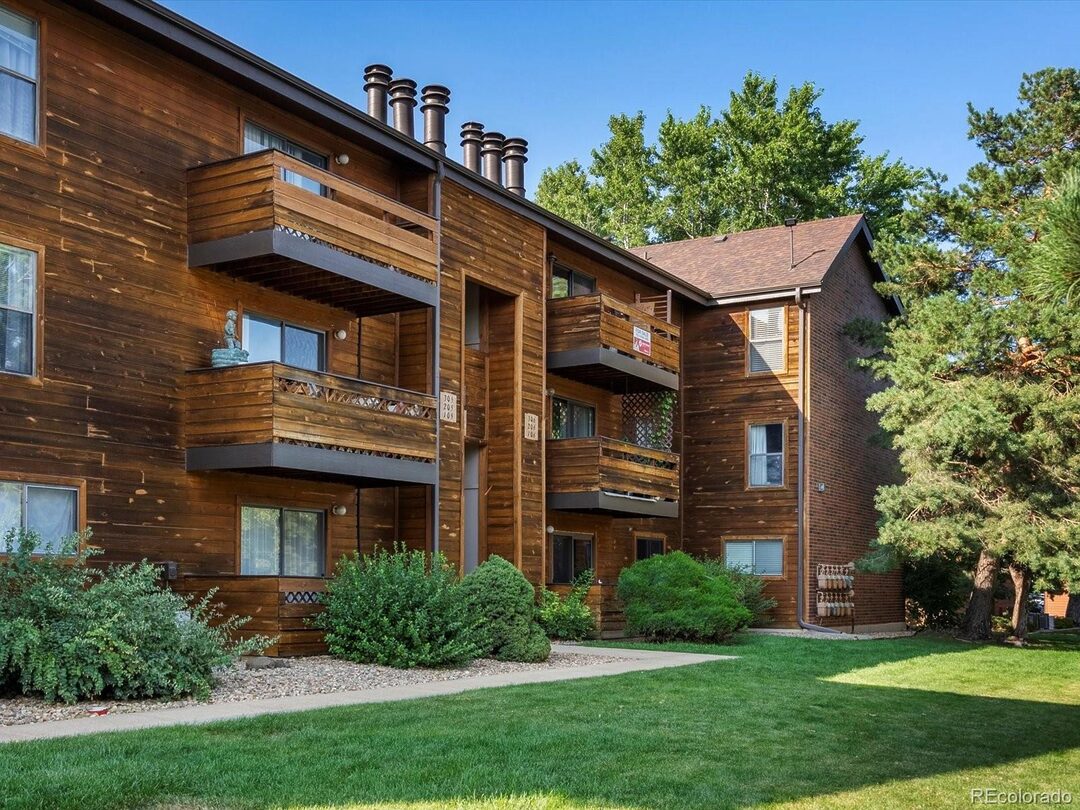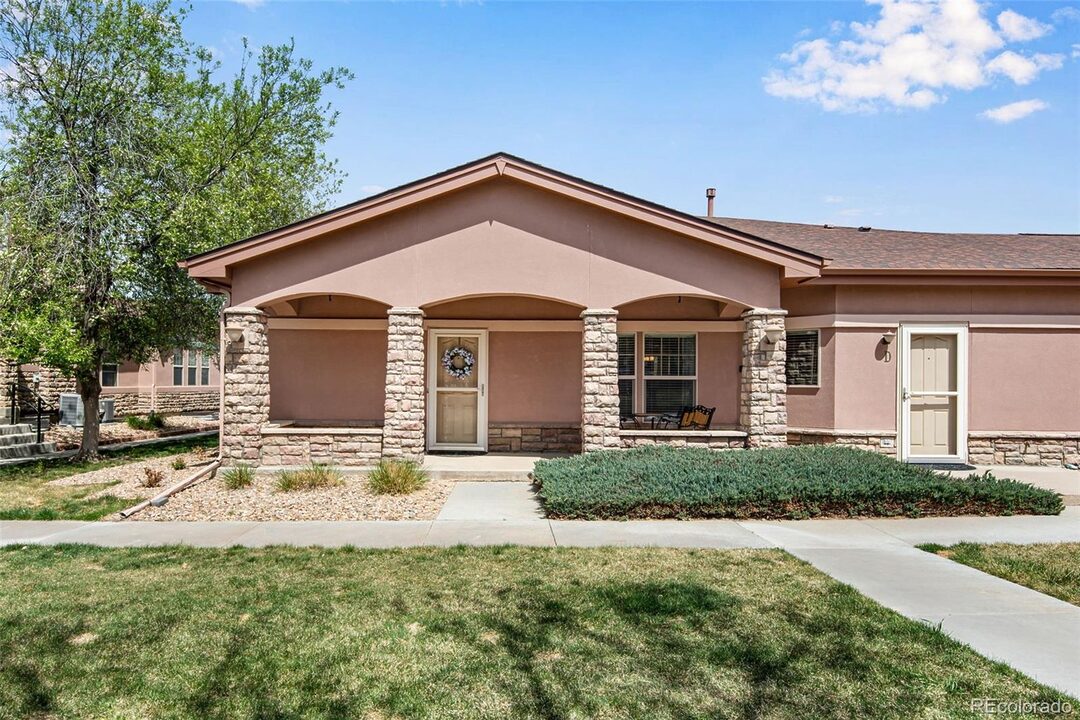Contents
- 1 Uh Oh! What Happens if the Real Estate Deal Gets Delayed?
- 1.1 H2: Delays? In My Real Estate Deal?!
- 1.2 H2: Communication is Key
- 1.3 H2: The Extension Tango
- 1.4 H2: What if the Deal Falls Apart?
- 1.5 H2: Commerce City, CO 80022, and Longmont, Colorado: Local Considerations
- 1.6 Summary: Dealing with Delays in Real Estate Transactions
- 1.7 More on What’s your contingency plan if one side of the transaction is delayed?…
What’s your contingency plan if one side of the transaction is delayed?, 10062 Southlawn Circle Commerce City, CO 80022, Longmont, Colorado, etc.
Why don’t more people offer What’s your contingency plan if one side of the transaction is delayed??
Okay, here’s a revised and more instructional version of your text, broken down into actionable advice and clear explanations. I’ve also restructured it to flow better and provide a clearer understanding of the key concepts.
Title: Navigating Real Estate Delays: Communication, Contingencies, and Local Market Factors
Introduction:
Real estate transactions rarely go exactly as planned. Delays can happen, but knowing how to handle them effectively can minimize stress and protect your interests. This guide outlines strategies for managing delays, understanding potential consequences, and considering the impact of local market conditions.
H2: 1. The Key to Handling Delays: Open and Honest Communication
When a delay occurs, your first and most important step is to communicate clearly and honestly with all parties involved. This includes:
- Your Real Estate Agent: Inform them immediately. They can help you understand the implications of the delay, explore potential solutions, and communicate with the other party.
- The Other Party (Buyer or Seller): Direct, honest communication fosters understanding and can lead to collaborative solutions. Avoid assumptions and be transparent about the reason for the delay.
- Your Lawyer: Keep your lawyer informed. They can advise you on your legal rights and obligations and help you navigate potential contractual issues.
Why is communication so important?
- Building Trust: Open communication builds trust and reduces the likelihood of misunderstandings.
- Finding Solutions: Discussing the delay openly can lead to creative solutions that might not be apparent otherwise.
- Protecting Your Interests: Informed parties are better equipped to protect their interests and avoid potential legal complications.
H2: 2. Understanding the Consequences of a Failed Deal
If a delay cannot be resolved and the real estate deal falls apart entirely, there can be significant consequences for both the buyer and the seller:
- Buyer Consequences:
- Loss of Earnest Money Deposit: The buyer could lose their earnest money deposit, which is a demonstration of good faith.
- Legal Action: The seller could sue the buyer for breach of contract.
- Seller Consequences:
- Lost Time and Opportunity: The seller loses time and the opportunity to sell to another buyer.
- Carrying Costs: The seller may incur additional carrying costs (mortgage, property taxes, insurance) while relisting the property.
- Legal Action: The buyer could sue the seller for breach of contract, especially if the seller caused the delay.
Important Note: The specific consequences will depend on the terms outlined in the purchase agreement. This is why it’s important to thoroughly read and understand the contract before signing.
H2: 3. Preparing for the Unexpected: Contingency Plans
A contingency plan is a “what-if” scenario that outlines how you will respond to potential problems. It’s like a roadmap for navigating unexpected challenges in the real estate process.
Examples of Contingency Plans:
- Buyer’s Financing Falls Through:
- Plan A: Secure alternative financing from a different lender.
- Plan B: Explore options with the seller to extend the closing date.
- Plan C: Withdraw from the deal (if the financing contingency allows).
- Seller Needs More Time to Move Out:
- Plan A: Negotiate a rent-back agreement with the buyer, allowing the seller to stay in the property for a specified period after closing.
- Plan B: Find temporary housing.
How to Create a Contingency Plan:
- Identify Potential Problems: Brainstorm potential delays or issues that could arise (financing, inspections, appraisals, title issues, etc.).
- Develop Solutions: For each potential problem, outline possible solutions.
- Prioritize Your Options: Determine which solutions are most feasible and desirable for you.
H2: 4. Local Considerations: Commerce City, CO 80022, and Longmont, Colorado
While general real estate rules apply nationwide, local market conditions can significantly impact the buying and selling process, including how delays are handled.
Factors to Consider:
- Market Demand: In a seller’s market (high demand, low inventory), sellers may be less willing to grant extensions. In a buyer’s market (low demand, high inventory), buyers may have more leverage to negotiate.
- Local Regulations: Be aware of any specific regulations or ordinances in Commerce City, CO 80022, or Longmont, Colorado, that could affect real estate transactions.
- Typical Closing Times: In a fast-paced market, closing times might be shorter, making delays more impactful.
- Local Expertise: Work with a real estate agent who has extensive knowledge of the local market in Commerce City or Longmont. They can provide valuable insights into local trends and negotiation strategies.
Example – Commerce City, CO 80022: With proximity to Denver and ongoing development, understand how these factors are affecting housing timelines in the current market.
Example – Longmont, Colorado: Consider the impact of its growing population and established community.
Conclusion:
Navigating real estate transactions requires proactive planning and effective communication. By understanding the potential causes and consequences of delays, developing contingency plans, and considering local market factors, you can minimize stress and increase your chances of a successful outcome. Remember to consult with your real estate agent and lawyer for personalized advice tailored to your specific situation and location.
Okay, here’s a blog post draft written for a 7th-grade reading level, focusing on contingency plans for real estate transactions. I’ve included Markdown formatting, headings, and a summary.
Uh Oh! What Happens if the Real Estate Deal Gets Delayed?
Buying or selling a house is a big deal, like a really, really big deal! It’s exciting, but sometimes things don’t go exactly as planned. What happens if one person – the buyer or the seller – runs into a problem and can’t meet the original deadline? Let’s talk about that, especially if you’re buying or selling in places like Commerce City, CO 80022, or Longmont, Colorado.
TL;DR: Real estate deals can get delayed. This article explains what to do if the buyer or seller can’t meet the original closing date. We cover communication, extensions, and what happens if things really fall apart!
H2: Delays? In My Real Estate Deal?!
Delays can happen for all sorts of reasons! Maybe the buyer’s loan takes longer to get approved. Maybe the seller needs more time to move out. Or maybe there are unexpected issues with the house during the inspection. It’s important to know what to do if things get bumpy.
H3: Common Reasons for Real Estate Delays
- Loan Problems: Getting a mortgage can take time. Banks need to check everything.
- Inspection Issues: Problems found during the home inspection might need fixing.
- Title Issues: Sometimes there are problems with who owns the house. This needs to be sorted out.
- Moving Problems: Sometimes sellers need extra time to find a new place or pack their stuff.
H2: Communication is Key
The most important thing when a delay happens is to talk to everyone involved! Your real estate agent is your best friend here. Make sure they know what’s going on.
H3: Talk, Talk, Talk!
- Keep everyone informed: Let your real estate agent, the other party (buyer or seller), and your lawyer know what’s happening.
- Be honest: Don’t hide problems. Being upfront helps everyone find a solution.
- Ask questions: If you’re confused about something, ask! Don’t be afraid to speak up.
H2: The Extension Tango
Sometimes, all you need is a little more time. You can ask for an extension to the closing date. This is like hitting the pause button, but everyone has to agree.
H3: Getting an Extension
- Written Agreement: An extension must be in writing and signed by both the buyer and the seller.
- Negotiate: You might need to compromise. The seller might want extra money, or the buyer might be willing to pay for some repairs.
- Reasonable Time: Ask for a reasonable amount of extra time. Don’t ask for months if you only need a few days.
H3: What if the Other Party Says “No”?
Sometimes, the other person might not agree to an extension. This can be tricky. Your real estate agent and lawyer can help you figure out your options.
H2: What if the Deal Falls Apart?
Sometimes, despite everyone’s best efforts, the deal might fall through. This isn’t the end of the world, but it’s important to know what happens next.
H3: Possible Outcomes
- Buyer Backs Out: The buyer might lose their earnest money deposit (the money they put down to show they were serious).
- Seller Backs Out: The seller might have to pay damages to the buyer.
- Lawsuits: In some cases, one party might sue the other to try to force the sale or get compensation. This is why having a good lawyer is important.
H2: Commerce City, CO 80022, and Longmont, Colorado: Local Considerations
Real estate rules are generally the same across the country, but local market conditions can affect how things play out. In a hot market like you sometimes see in Commerce City or Longmont, sellers might be less willing to grant extensions because they know they can quickly find another buyer. On the other hand, if it’s a slower market, buyers might have more leverage.
H3: Working with Local Experts
- Local Knowledge: Find a real estate agent who knows the local market well.
- Understand the Trends: Be aware of whether it’s a buyer’s or seller’s market in your area.
- Legal Advice: Get legal advice specific to Colorado real estate laws.
Summary: Dealing with Delays in Real Estate Transactions
So, what have we learned? Delays can happen in real estate deals due to things like loan problems, inspection issues, or moving difficulties. The best way to handle delays is by communicating openly and honestly with everyone involved: your real estate agent, the other party (buyer or seller), and your lawyer. Sometimes, you can get an extension to the closing date, but this requires a written agreement and might involve some negotiation. If the deal falls apart entirely, there can be consequences for both the buyer and the seller, and legal action might even be necessary. Keep in mind that local market conditions in places like Commerce City and Longmont, Colorado, can affect how willing the other party is to grant an extension. The key is to be prepared, stay informed, and work with experienced professionals who can guide you through the process. Having a contingency plan in place is like having a roadmap for when things don’t go according to plan, helping you navigate the challenges and reach your goal of buying or selling a home.
I hope this meets your requirements! Let me know if you’d like me to make any changes.
More on What’s your contingency plan if one side of the transaction is delayed?…
- Okay, here’s an exhaustive list of SEO keywords, one per line, related to both “What’s your contingency plan if one side of the transaction is delayed?” and “10062 Southlawn Circle Commerce City, CO 80022”. I’ve tried to cover a wide range of search intent and potential phrasing.
- Keywords Related to Transaction Delay Contingency Plans:
- Real Estate Transaction Delay
- Contingency Plan Real Estate Delay
- What happens if closing delayed?
- Real Estate closing delay contingency
- Buyer delay real estate
- Seller delay real estate
- Delayed closing contract
- Real Estate contract contingency
- Closing date extension real estate
- Legal remedies delayed closing
- Breach of contract real estate
- Real Estate contingency clause
- Contingency for delayed appraisal
- Contingency for delayed loan approval
- Remedies for delayed closing
- Buyer unable to close on time
- Seller unable to close on time
- What to do if closing is delayed?
- Consequences of delayed closing
- Negotiating a delayed closing
- Real Estate Purchase Agreement Contingency
- Closing Date Extension Agreement
- Delayed closing fees
- Delayed closing penalties
- Real Estate closing issues
- Real Estate transaction problems
- Delayed closing remedies
- Force Majeure Real Estate
- Impact of delayed closing
- Extending closing date contingency
- Real Estate Attorney delayed closing
- Legal advice for delayed closing
- Protecting yourself from delayed closing
- Contingency clause examples
- Real Estate negotiation strategies
- Contingency planning for real estate
- Risk management real estate transaction
- Escrow account delayed closing
- Financing contingency delay
- Title issues delayed closing
- Survey issues delayed closing
- Home inspection delay contingency
- Appraisal delay contingency
- Delayed closing due to financing
- Delayed closing due to appraisal
- Delayed closing due to inspection
- Delayed closing due to title
- How to avoid delayed closing
- Minimizing risk in real estate
- Contingency plan for buyer default
- Contingency plan for seller default
- What if buyer backs out after closing delay?
- What if seller backs out after closing delay?
- Earnest money delayed closing
- Dispute resolution delayed closing
- Mediation delayed closing
- Arbitration delayed closing
- Real estate litigation delayed closing
- Suing for delayed closing
- Damages for delayed closing
- Specific performance real estate
- Contract remedies for delayed closing
- Understanding real estate contracts
- Real Estate legal terms explained
- Due diligence real estate closing
- Real Estate Contract Law
- Real estate investment risk
- Mitigating real estate risk
- Real estate delay legal advice
- Closing delay legal consequences
- Closing timeline expectations
- Closing process checklist
- Real estate transaction timeline
- Closing costs delayed closing
- Delayed Closing impact on moving plans
- Negotiating closing extensions
- Contingency Planning Real Estate
- Closing Date Extension Agreement Sample
- Real estate agreement of sale delayed closing
- Keywords Related to 10062 Southlawn Circle Commerce City, CO 80022:
- 10062 Southlawn Circle
- 10062 Southlawn Circle Commerce City
- 10062 Southlawn Circle, Commerce City, CO 80022
- Commerce City Real Estate
- Commerce City Homes for Sale
- Homes for Sale in Commerce City CO
- Real Estate Commerce City CO
- Commerce City CO Real Estate Listings
- Commerce City CO Homes
- 80022 Real Estate
- 80022 Homes for Sale
- Real Estate in 80022
- Homes for Sale 80022
- Commerce City Colorado Real Estate
- Southlawn Circle Commerce City
- Southlawn Circle, Commerce City, CO
- Real Estate near 10062 Southlawn Circle
- Homes near 10062 Southlawn Circle
- Commerce City CO property
- Commerce City CO houses
- Houses for sale in Commerce City CO
- Property for sale in Commerce City CO
- Living in Commerce City CO
- Commerce City CO Neighborhoods
- Southlawn Circle Neighborhood
- Real Estate Agent Commerce City CO
- Realtor Commerce City CO
- Find a Realtor Commerce City
- Best Realtors in Commerce City
- Top Real Estate Agents Commerce City
- New Listings Commerce City CO
- Open Houses Commerce City CO
- Commerce City CO Market
- Commerce City CO Market Trends
- Real Estate Market Commerce City
- Home Values Commerce City CO
- Commerce City CO Property Values
- Average Home Price Commerce City CO
- Selling a Home in Commerce City CO
- Buying a Home in Commerce City CO
- Moving to Commerce City CO
- Commerce City CO Schools
- Schools near 10062 Southlawn Circle
- Commerce City CO Amenities
- Commerce City CO Parks
- Commerce City CO Restaurants
- Things to do in Commerce City CO
- Denver Metro Real Estate
- Adams County Real Estate
- Real Estate Adams County CO
- Homes for sale in Adams County CO
- Adams County Colorado Real Estate
- 10062 Southlawn Circle property value
- Zillow 10062 Southlawn Circle
- Redfin 10062 Southlawn Circle
- Realtor.com 10062 Southlawn Circle
- [Specific neighborhood near Southlawn Circle – if known] Real Estate
- [Specific neighborhood near Southlawn Circle – if known] Homes for Sale
- Combined/Hybrid Keywords (Connecting Both Topics):
- Contingency plan for real estate delay Commerce City
- Delayed closing Commerce City CO
- Real estate lawyer Commerce City delayed closing
- What happens if my Commerce City closing is delayed?
- Closing delays in Commerce City Colorado
- Real estate contract Commerce City contingency
- Contingency clause for Commerce City property
- Buying property in Commerce City contingency
- Selling property in Commerce City contingency
- 10062 Southlawn Circle closing delay
- Real Estate agent Commerce City contingency plan
- Commerce City CO real estate contract questions
- Negotiating a real estate deal in Commerce City CO
- Real estate contracts in Commerce City Colorado
- Adams County CO real estate delays
- Real estate attorney near 10062 Southlawn Circle
- Commerce City Real estate transaction issues
- Commerce City CO home buying issues
- Commerce City CO home selling issues
- Problems buying a home in Commerce City CO
- Problems selling a home in Commerce City CO
- What to do if my Commerce City home closing is delayed
- Extending closing in Commerce City CO
- Commerce City CO contract addendums for closing delays
- Denver closing delays affecting Commerce City
- Legal recourse for delayed closing Commerce City
- Seller delayed closing Commerce City
- Buyer delayed closing Commerce City
- Contingency plan for late closing in Commerce City
- How to protect myself from closing delays in Commerce City
- This list is designed to be comprehensive. Remember to analyze the search volume and competition for each keyword before using them in your SEO strategy. Good luck!









